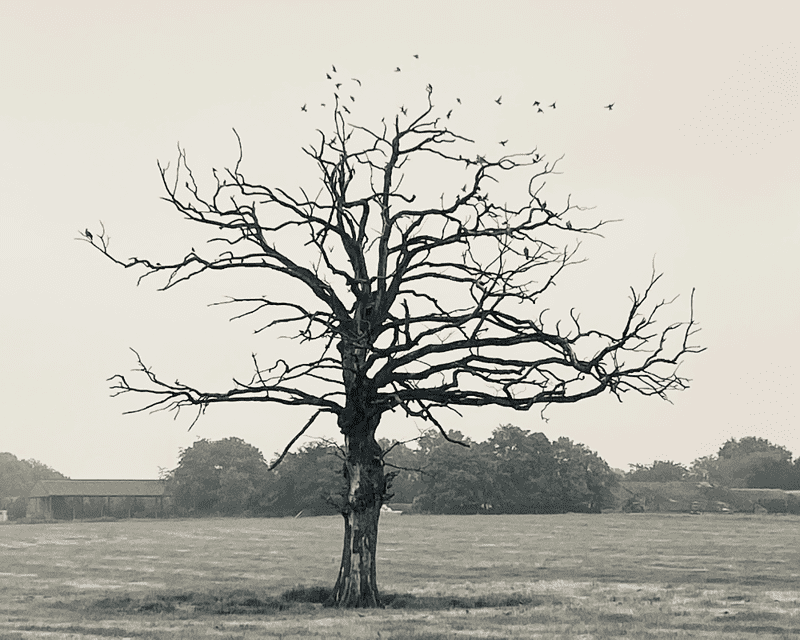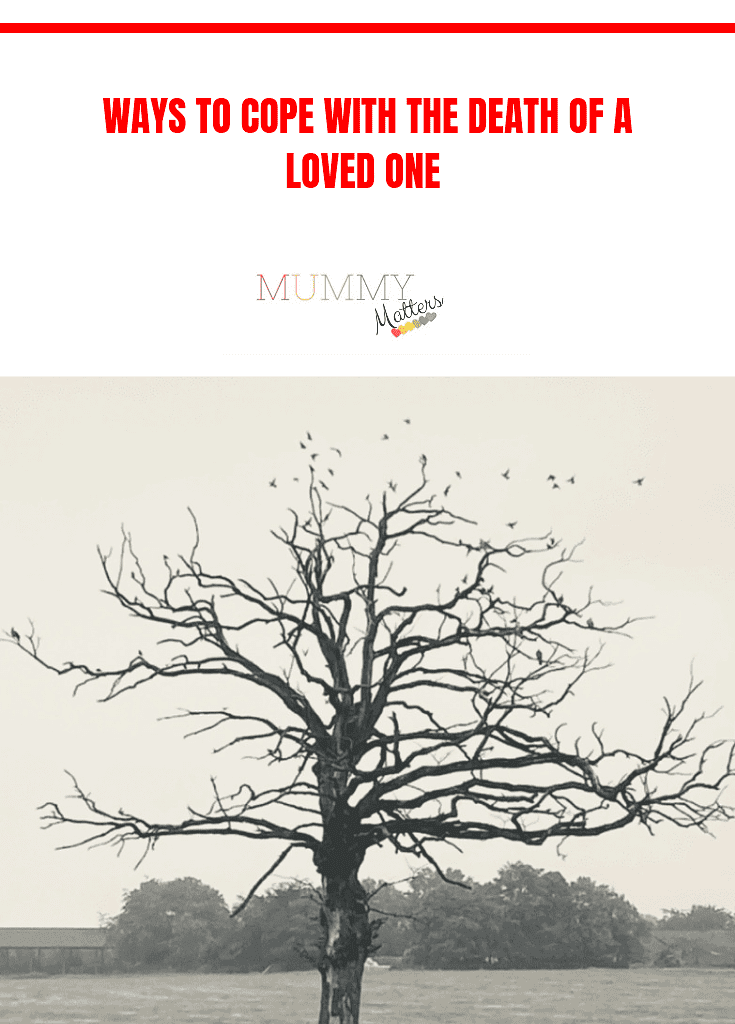The death of a loved one is one of the most challenging experiences that a person can go through. It can be tough when the death is sudden or unexpected. The grieving process is unique to each individual, and there is no right or wrong way to cope with the loss. This blog post will discuss ways to cope with the death of a loved one.
Acknowledge and express your feelings

It is essential to acknowledge and express the emotions that come with dealing with the death of a loved one. This can include sadness, anger, guilt, relief, confusion or any other emotion you may be feeling. Writing in a journal can effectively express these feelings and help make sense of them.
Acknowledging the death can also be done by honouring the life of the loved one. This might include hosting a memorial service or gathering family and friends together to celebrate the life of your loved one.
Allow yourself time to grieve
Give yourself permission to take all the time you need to process and grieve in whatever feels best. This could involve spending time alone, talking with friends or family members about your feelings, or participating in activities that honour your loved one’s memory.
Spend time alone to reflect and remember the good times you shared with your loved one.
Reach out for support
It is crucial to reach out for help when you need it. Reach out to family, friends or a professional counsellor who can provide compassionate support throughout this difficult time. Talking to someone who can listen without judgement or provide advice can be beneficial in helping to process the loss of your loved one.
A support group will also help reduce feelings of isolation during this time.
Take care of yourself
Taking care of your physical and mental health will be important as you grieve the death of your loved one. Make sure to get enough sleep, eat healthy meals, and engage in regular exercise or hobbies. Self-care is essential for getting through a difficult time like this.
Make sure to seek medical help and get regular check-ups with your doctor.
Participate in rituals
Participating in rituals can help process the death of a loved one. This could include visiting the gravesite, writing letters or poems to the deceased, lighting candles, attending religious services or dedicating time to a cause that was important to your loved one.
These activities will provide comfort and help you remember the life of your loved one.
Don’t make any major decisions
Give yourself time to process the emotions related to the loss before making any significant decisions. This might mean holding off on making significant life changes until you have had time to come to terms with the death.
Find meaning in death
Try to find meaningful ways to honour the life of your loved one and make a conscious effort to focus on things that will bring you comfort or peace. This could be engaging in activities like starting a charity foundation, completing projects that your loved one started, or connecting with people who shared special memories and experiences.
Finding meaning in their death can help you stay connected and cope with the loss better.
Create a memorial
Creating a meaningful memorial can be an important part of coping with the death of your loved one. This could involve setting up an altar or shrine at home and growing plants in memory. Or, if you feel comfortable, share stories, photos and memories of your loved one with others.
A memorial can be a great way to honour the life of your loved one and to keep their memory alive.
Stay connected
It is important to stay connected with friends and family, especially during a difficult time. Staying connected can help remind you that you’re not alone and can provide emotional support. Make sure to set aside time for yourself, but also make an effort to reach out when needed.
Find purpose in life
Although it may be hard, find ways to move forward in life, given the circumstances. After dealing with such significant loss, it is essential to find meaning and purpose in life. Choose something that gives you joy or fulfilment, and choose activities that will help motivate you going forward. Maybe start a new project or endeavour to give you something to look forward to.
Be kind to yourself
Most importantly, be kind to yourself. Take time to do things that make you feel good, and be gentle with yourself as you process the emotions associated with this difficult time. Remember that it’s ok to cry, get angry or feel frustrated—all these emotions are normal after such a great loss.
Take one step at a time and know that life will get better in due course.
Don’t be afraid to talk about them
Finally, don’t be afraid to talk about your loved one. It can be liberating to share stories and memories—it will help keep the memory of your loved one alive and present while also helping you process all the emotions associated with their death.
Children
Children may experience the death of a loved one differently than adults. It is important to create an open and safe space for them to express their emotions and ask questions. Depending on their age, activities like drawing pictures or writing letters can help them process these difficult emotions.
It is also important to listen patiently, provide reassurance and offer comfort during this time. Helping children cope with loss early in life will give them tools for dealing with future losses more effectively.
Wills & Estates
When a loved one dies, it’s important to take care of the legal aspects. Understand and consider the deceased’s wishes for their estate and how best to manage them. Get in touch with a lawyer or financial advisor if necessary. Get legal assistance with your estate planning if needed.
With a lawyer’s help, you can ensure that your loved one’s wishes are respected and honoured after they have passed away.
Grief recovery programs
Grief recovery programs offer support to individuals who are struggling with loss and bereavement. These programs allow participants to share stories, memories, and experiences safely. If you feel you could benefit from this support, look into local grief recovery programs or seek out online resources.
Journaling
Journaling can be an effective way to process your emotions and come to terms with the death of a loved one. Writing about the experience can help provide clarity and understanding of the grief process and relief from negative thoughts.
You don’t have to write every day; journaling doesn’t need to be a lengthy process—just writing down whatever comes to mind at that moment can be helpful.
Crying
Crying is a natural response when grieving the death of a loved one. Although it may feel overwhelming and uncomfortable, crying can be cathartic and help you process all the emotions associated with your loss. If you need to cry, don’t be afraid to allow yourself to shed those tears.
Take a trip down memory lane
Sometimes, revisiting old memories can be a great way to cope with the death of a loved one. Take time to look through photos, watch videos or listen to music together. Not only will this bring back fond memories and remind you of the joyous times you shared, but it can also help provide closure.
Write a Letter to the Person Who Died
Writing a letter to the person who died can be an emotional and cathartic process. You don’t have to send it (although you could if you wanted to). Use this as an opportunity to express your love and appreciation for them, share your favourite memories or say goodbye.
Donate in their memory
Making donations in memory of a loved one is a great way to honour their legacy and help provide closure during such a difficult time. Donating money or items in their name can make all the difference in the world and keep their memory alive forever.
Move on with life
While it may be hard to move past the death of a loved one, it is important to keep living your life. Don’t let grief take over; allow yourself some space to heal. Seek out activities that you enjoy and try something new—this can help bring a sense of joy back into your life. Spend time with people who make you feel supported and loved, and set small daily goals for yourself. Lastly, be patient with yourself during this process. Healing from loss takes time, but eventually, it will get easier.
The death of a loved one is never easy, and dealing with grief can be overwhelming. But by finding healthy ways to cope, it’s possible to move forward and live a meaningful life. Take advantage of the available resources, reach out for help when needed, and don’t be afraid to lean on your family and friends for support. May these tips help guide you through your grieving journey as you honour your loved one’s memory.

